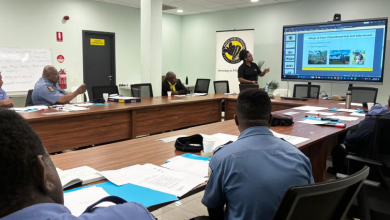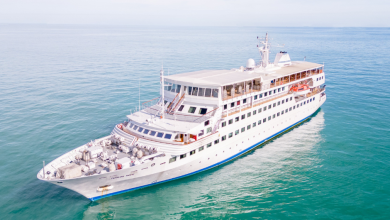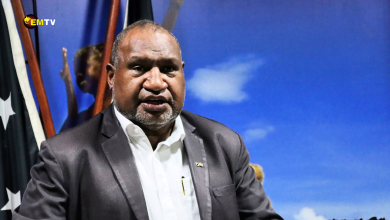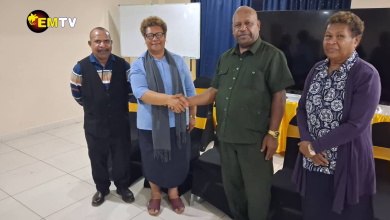Aviation and maritime security urged to step up
by Quinton Alomp – EM TV, Madang
Monitoring and surveillance of overseas vessel movements and activities must be strictly in compliance with maritime laws.
This is to ensure Papua New Guinea’s international security and trade obligations and commitments are properly monitored to avoid risk.
The bio-security control of pests and diseases that enter PNG shores is important, especially at this time when Ebola is killing thousands in Africa.
The National Transport Department’s First Assistant Secretary for the Maritime Safety Division, Matthew Wowoni says while international trade plays an important role in our society, overseas vessels entering PNG waters must strictly be monitored as well.
Ships operating on international routes have to comply with the International Ships and Port Facility Code set by International Maritime Organisation.
Security officers on board all ships and stationed at port facilities must carry out their duties responsibly to ensure all vessels comply with the ISPS code.
Wowoni says all major ports in PNG execute the ISPS code and although Ebola is a concern, the risk is low as PNG has no direct trading routes with West Africa.
Similar responses were highlighted by National Maritime Safety Authority Executive Manager Captain Nurur Rahman and US Coast Guards International Port Security Liaison Officer Kim Wheatly, both of whom agreed for the government to start creating response plans to avoid future risks.
While the Ebola virus has killed thousands in West Africa, attracting fear worldwide, PNG’s vulnerability calls for tougher maritime and aviation security measures at the country’s gateways.






